August 8th, 2013
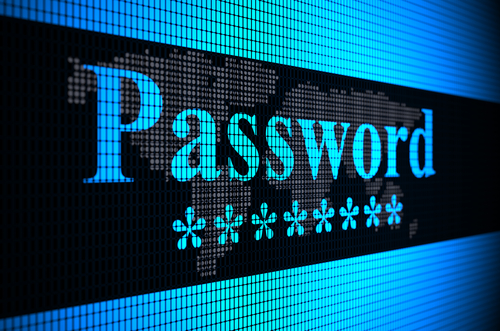
How long do you think it would take an experienced hacker to break into your most valuable account online? For most people, the answer is about 3 minutes.
The average hack time is low because many people make it painfully easy to break into their accounts. Using names, anniversaries, birthdays and other personal information that is also public information, or at least readily available on any of your social media accounts, is a surefire way to get an account hacked. Similarly, using full words in your password makes it easier to crack.
There are four character types available for any password, upper and lower case letters, numbers, and special characters like symbols and punctuation. Use a combination of all four to make the strongest password possible.
As you might expect, the shorter your password is, the weaker it is. Shoot for a length of at least 8 characters.
Since nearly two-thirds of people use the same password for multiple sites, when one site becomes compromised, a cyber criminal gains access to every account using that password.
For more information about creating strong, secure passwords, check out Denise Lu’s article at Mashable and the accompanying infographic from Instant Checkmate.
Even the strongest passwords don’t protect you fully, but they do make it more unlikely that your most precious data remains secure. To put more security in place, contact Geek Rescue at 918-369-4335. We have a number of security solutions for home and business to keep data out of the wrong hands.
August 7th, 2013
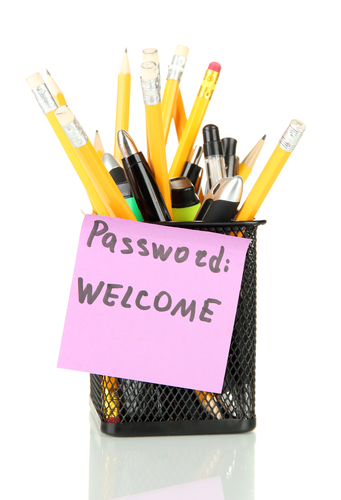
When you log-in to your most visited sites on the web, your internet browser will offer to store your log-in information so you don’t need to enter it every time you visit the site. Many users use this function to keep from forgetting passwords or just to make their lives that much easier.
Have you ever thought about who might have access to the passwords you store? Particularly for Chrome and Firefox users, anyone with local access to your machine also has easy access to all of your stored passwords.
Tim Scheisser, of TechSpot, reveals that in two of the most common browsers, stored passwords are not hidden behind encryption or any type of master password. Instead, they are available to anyone using the computer.
Chrome representatives say the omission of any type of security around your stored passwords was intentional. Rather than leading you to believe your passwords are safe because of encryption or other measures, they want you to understand that if anyone gains local access to your computer, all of your information is compromised.
While it’s true that someone who has access to your physical machine is hard to stop, many users would prefer more protection than Chrome and Firefox supply. Internet Explorer and Safari both provide a master password lock before granting access to stored passwords. This is certainly breakable, but at least takes some effort.
Client side protection has never been, nor will it ever be the main focus of a browser. To maximize your security, consider not using the store password function. You’ll also want to call Geek Rescue at 918-369-4335 and have the latest security software loaded onto your machine. With the right tools in place, you avoid devastating losses of data.
August 6th, 2013
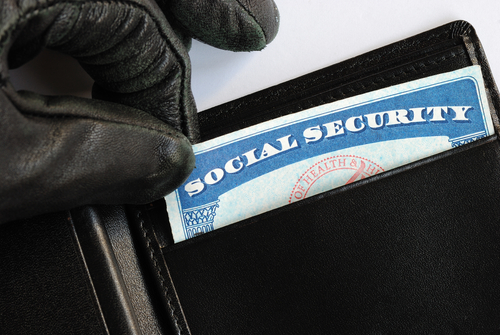
There are about 12-million people who are the victims of identity theft each year. In the US alone, identity theft costs about $18-billion. What can you do to avoid having your identity stolen?
As Abigail Wang, of PC Mag, points out, the key to staying safe is taking precautions offline, as well as online.
Shredding documents, especially mail like bank or credit card statements, that contain personal identifiable information is vital in keeping your identity safe. Even address labels that include your name could be harmful. Before you throw out junk mail, be sure to shred it. When mailing checks, drop them off at the post-office instead of leaving them for the mailman.
Online, it gets trickier to make sure you’re safe. Installing robust antivirus software is a necessary precaution and goes a long way to protect your security. You’ll need to keep that software up to date at all times.
In your email, trust your spam filter. If an email looks suspicious, don’t click any links contained in it and avoid opening at all if possible. Deleting old emails containing account information is also a good idea in case a hacker gains access to your inbox.
On social media, use privacy controls so that people you don’t know can’t see your personal information. It’s amazing how much someone with some expertise can do with just your birthday and hometown.
To keep your email and computer safe, contact Geek Rescue at 918-369-4335. We install state of the art security software that locks out hackers. Every three seconds, someone’s identity is stolen. Don’t let yourself be a victim.
August 5th, 2013

There are many common problems in the day-to-day operations of a business that can be solved by implementing virtualization. Paul Mah, of CIO, has a list of some of these issues.
Virtualization has become such a buzzword, it’s definition and capabilities have expanded recently. At its most basic level, virtualization is creating a virtual version of a device or resource. For many companies, that means creating a virtual copy of servers and storage devices to create more resources without multiplying costs. When you consider the implications of creating virtual, working versions of actual devices, the possibilities are nearly endless.
- Extend an apps life- Most businesses use some sort of niche application, which easily becomes obsolete and unusable without regular updates or maintenance. The company that made the app may no longer be in business, or may have just stopped offering support for that software. Either way, the application is useless if the machine running it stops working. If you virtualize the entire machine, you not only extend the life of the machine indefinitely, but you also allow access to the app from nearly anywhere.
- Back-up your data- Much like the application of cloud services previously discussed here, virtual machines are a great way to back-up important data. By making a copy of a server or storage unit, you’ll have a restore point in the event of a disaster.
- Provide mobile access- Your workforce is more mobile than ever before and virtualization makes it easy for them to access vital information and applications when they’re away from their desks. Creating a virtual machine that hosts any programs they may need to access makes it easy for anyone to conduct business from practically anywhere.
- Beef up security- An alarming number of SMBs can’t survive the cost and data loss associated with a large-scale cyber attack. With virtualization, minimize the risks by segmenting your employees activities. Create a virtual machine used only for web browsing so hackers can’t access any vital data.
This is only a short glimpse at the capabilities of virtualization. To learn how to implement it in your business, call Geek Rescue at 918-369-4335.
August 2nd, 2013

You may think it’s easy to avoid malware. Sketchy looking emails, not-so-subtle internet ads and downloading too good to be true files all lead to likely infections of your computer. Those are thinly veiled attempts to put malware on your machine and most internet users have learned how to stay safe. But what if those malware attempts weren’t so thinly veiled?
Jaikumar Vijayan, of ComputerWorld, reports that malware is being distributed more often from legitimate cloud services like Google Docs or Dropbox, which makes them difficult to avoid. In the past, malware usually stemmed from a site created by a hacker. That made it easy to seek out those sites and blacklist them. Naturally, hackers’ methods evolved to try to stay one step ahead.
Because the malware stems from a usually trustworthy source, the malicious files are more likely to slip past any security defenses in place. No longer can you blindly trust files simply based on where you found them.
Evidence of malware has been found in a number of online cloud services. These services allow registration without requiring much information, which means cyber criminals are able to register with fake information.
To stay safe from infection, you’ll need to be more intelligent in your web activities and have the latest security measures in place. To be sure you’re prepared for the latest malware attack, contact Geek Rescue at 918-369-4335. They clean your machine to rid it of any existing malware, and give you the tools to keep it clean.
July 26th, 2013
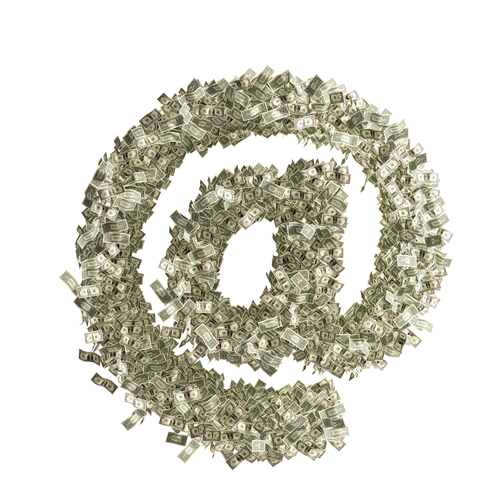
Many people think they don’t need to worry about criminals hacking into their email accounts because there is nothing of value or interest in their inbox. Most likely, that’s not true. Fahmida Y. Rashid, of PC Magazine, reports that a tool from the University of Illinois- Chicago puts a value on your email to give you an idea of why someone might want to access it.
Cloudsweeper puts itself into the mind of a cybercriminal and scans the emails saved in your inbox to find potential value. Hackers are looking for account information, passwords and even other sites associated with your email address. They can use password resets to change your existing passwords, then read the email the site sends to you to get the new one. That means that any email you haven’t deleted from a site you have an account at could be dangerous to you in the case of a hack.
The service isn’t perfect. It pops up with false positives if you happen to keep emails from sites like Facebook or Amazon but don’t actually have an account there. Still, it lets you see what messages you should consider deleting before they fall into the wrong hands.
To fully protect your email, call Geek Rescue at 918-369-4335. Don’t let your personal information or account information get out. Geek Rescue keeps you protected with the latest security software and IT services.
July 22nd, 2013

Nearly every day, we hear about another catastrophic leak of data suffered by some of the world’s top companies. Either information vital to the way the company does business is intercepted, or customer’s personal identifiable information is. Both are crippling to the success of the company.
You need to take precautions in order to be as protected as possible against these devastating attacks. At the Up and Running blog, Emily Green has some suggestions for how to protect your company’s most important information.
- Change Your Passwords– You shouldn’t wait until your system is hacked to decide your passwords need to be strengthened. Make sure your passwords are as strong as possible and change them regularly to something equally strong. Changing user names is a good practice as well.
- Learn About Your ISP– When choosing an internet service provider, you may only consider the price and the speed of your connection. Your ISP should provide an extra measure of security, however, and if it doesn’t, it’s time to find a new one.
- Utilize Antivirus Software– Quality antivirus software keeps out viruses, malware, spyware and protects email from spam and phishing attacks. It also provides a firewall to further protect you. It is only effective, however, if you keep it updated.
- Use Encryption– Whatever data your company keeps, someone may find it valuable. Keeping it encrypted ensures that even if your network is compromised, your important data is still safe.
- Block Sites– Many times, the biggest threat to your security is your own employees. Unfortunately, human error results in most of the virus, malware and spam infections. Blocking potentially dangerous sites erases these possibilities.
To get the most protected, secure network available, contact Geek Rescue at 918-369-4335. We tailor a security infrastructure to your business and help keep your software updated and ready. Ask about our exclusive Safety Net service for the best in security solutions.
July 19th, 2013
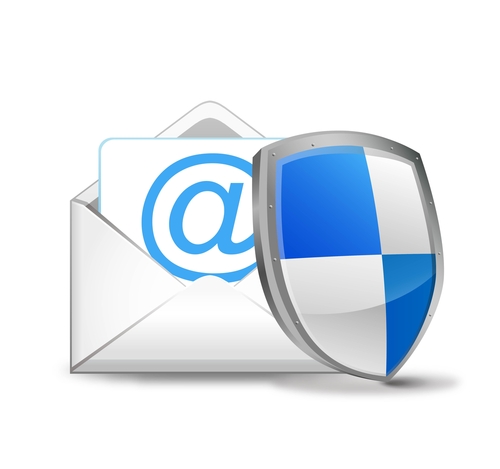
Despite your best efforts, it’s fairly likely you’ll click on a bad link or open an email you shouldn’t have at some point. When that happens and you get an email from a contact informing you that your address has been spamming everyone with malicious links, you’ll need to take action. Adam Levin has some tips on how you come back from an email hacking at Huffington Post.
- Change Your Passwords– It’s possible that whoever gained access to your email already changed your password and locked you out. If not, change to a stronger password to lock them out. Don’t limit the change to just the hacked email account either. Take this opportunity to make all of your important online accounts more secure. You have to assume every account associated with your email could have been compromised. You may want to do this on a different device than you usually access your email in case malware is allowing the hacker to steal your passwords.
- Report The Hack– Your email provider has a plan in place for compromised attacks. They will help you through this process. It’s also a good idea to tell any business you have an account with associated with the hacked email, especially a bank. And, of course, warn everyone in your contacts list to be wary of emails from your account.
- Scan With An Antivirus Program– As I mentioned, the hacker may have gotten your password initially thanks to a monitoring malware on your computer. Without checking for malicious programs, you may open yourself up to hacks of other accounts.
- Review Email Settings– The cyber criminal may have set up a forward email to continue monitoring your activity and stealing information. Be sure to delete those and make sure everything else is the way you want it.
Even after taking these necessary steps, you’ll want to closely monitor your bank accounts and credit score. Unfortunately, knowing your email has been hacked doesn’t mean you know all of the personal information the hacker gained access to. To keep your computer, email and identifiable information safe online, call Geek Rescue ta 918-369-4335. We use the latest software to keep your system safe from intelligent, and ever-evolving, attacks.
July 18th, 2013

Recently, cybercrime is growing and it’s being attributed to what’s being called “an industrial approach”, which means criminals measure their talents, programs and equipment as commodities to trade and sell. This makes the ability to attack a network a mere price tag away. John P. Mello Jr.’s article for CIO quotes Trend Micro’s Vice President of Cybersecurity as saying, “you can get enough capability to hack into almost anything for 600 bucks”.
The leading cybercrime trends were identified in a report from 41st Parameter, a fraud detection and prevention company. The first is data breaches, which refers to someone hacking into a database and stealing account information in order to sell or use for identity theft. In the past two months alone, Twitter, LinkedIn and LivingSocial have all been the victims of a data breach, which led to more than 50-million users’ passwords and personal information being compromised.
Businesses have to be aware of DDoS attacks. Short for Distributed Denial of Service, the goal is to disrupt a company’s operations, usually by disabling the website. This leads to an influx of calls, an increase in company costs and a decrease in customer trust and satisfaction. This is not necessarily done for profit, but just to hurt a business. Experts are finding, however, that often a DDoS attack is a diversion for another operation being run simultaneously.
Malware and viruses for all devices, particularly mobile due to a usual lack of security, are also significant threats. Geek Rescue protects you from all of these threats and more. Call them at 918-369-4335 for your home and business solutions before an attack infiltrates your network.
July 17th, 2013

You’re at home surfing the web, as you’ve been known to do. You follow a couple of interesting links and suddenly find yourself in a dark corner of the internet. A page appears in your browser claiming to be controlled by the “FBI Cyber Department” or “FBI Cybercrime Division”. They tell you they’ve seized control of your browser, recorded your activities and you will face legal action unless you pay a sizable fine. To show they mean business, they flash a pop-up of displaying your current location.
Now what do you do? Attempting to leave the page only causes the cycle of messages to start over and trying to close the browser proves fruitless. Paying the fine, however, would be just as pointless.
This site is a scam, as you may have already guessed. It’s accurately called ransomware because of the way it holds your computer hostage and demands payment. Previously, we warned you about a virus that similarly locks down your computer. The virus is difficult to get around, but there are some things to try if you come across a ransomware site, as Topher Kessler details in his post at Cnet.
Because this site is based off a relatively simple JavaScript code, it can be thwarted by disabling JavaScript in your browser. This will be an option found in the settings. Once JavaScript is disabled, the window can be closed like normal.
If you can’t find the JavaScript option or don’t want to go that route, force quit the browser. Unfortunately, your browser may automatically take you to the last page of your previous browsing session, which puts you back where you started. There are ways to disable this function, however.
If you happen to be using Safari, simply reset it from the application menu. These simple fixes will allow you to regain control of your browser and your computer. If you continue to experience trouble or want to safeguard against other malicious attacks, Geek Rescue is always here to help. We have the experience and know-how to restore your computer after any attack and safeguard it for the future. Come by or call us at 918-369-4335.




















